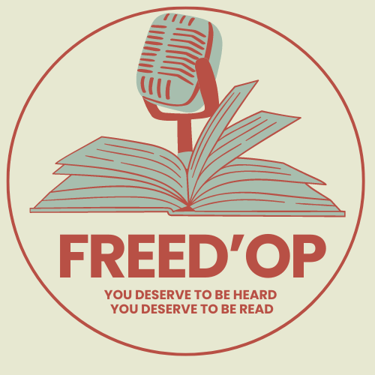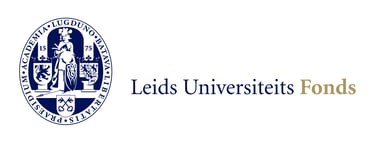While saying goodbye to Istanbul 1/3
Brody L.
2/14/2025
In this age, travel can begin a few hours after one’s determination. You pick up your phone, google “ams to istan”, and the cheap return flights will be presented on the screen. You do not even need to type your destination’s name correctly. For the past several thousand years, when travelers unfold the maps, trying to draw a path free of beasts, mountains and warlords, they are also voyaging through myths and linguistic landscapes. Leeuwarden, the capital of Friesland, Netherlands, is the City of 100 Names. Throughout the 11th to 19th century, the city’s name kept changing, even every two years, resulting in 225 variations. Ljouwert, Liwwadden, Leewadden, Luwt, Leaward or Leoardia puzzled medieval travelers who were longing for the treasure of Grutte Pier, who would kill anyone who was not Frisian.
Many uncertainties cease to exist nowadays. Yet, I still missed the departure flight. A four-night trip became a three-night one. However, what difference would this small mistake make? It’s never enough when facing the Eternal City, Nova Roma. Even its decline lasted one hundred and fifty years. Living in reality, any crafted plan always appears fragile, and the best coping strategy is to go with the flow. In the rain, queuing to board the plane, I even felt a subtle excitement, because uncertainty is the greatest gift an impromptu traveler can receive.
I lost about 15 euros at the currency exchange counter in Eindhoven, a stark reminder of the financial realities of international travel. The unstable and continuously declining lira is mentioned in all traveler blogs. Three liras used to be worth one euro, but after the failed coup in 2016, its value plummeted. Now, for one euro, you should expect 36 liras. In Ghost Train to the Eastern Star , Paul Theroux wrote, “A national crisis, a political convulsion, is an opportunity, a gift to the traveler. Nothing is more revealing of a place to a stranger than trouble.” Therefore, two weeks after my plan for traveling in Tbilisi failed to carry out, I fell asleep on the plane
going to Istanbul. My laptop was brimming with articles about the recent tensions in Turkish politics.
As a young diaspora who just set his foot in Europe, I have many years ahead of me. I try not to start my journey with usual suspects like Paris, London or Vienna. Not silently walking on the dustless marble floor inside those grand museums. I don’t want to drink a €10 coffee, sitting in an old neighborhood overrun by Airbnbs and souvenir shops, and lie to myself that this is revisiting history. No, I want to start with the edge of Europe. Where there are protests, chaos, and roads with cracks. Where the real changes happen, no matter whether they are revolutions or quiet moments of everyday lives. I want to witness history unfolding.
Of course, I also relish the identity of a traveler. It is this very identity that grants me the privilege of being both immersed in and detached from the world around me. During my trips, I can experience joy without much fear of its inevitable end; I can witness suffering without worrying much about bearing its burden. No one knows who I am. This carefree identity, this nebulous sense of belonging, is perhaps the scarcest commodity in today’s world.
I spent the last thirty minutes on the plane talking to a Turkish woman about her family and lives in the Netherlands. Before we parted in front of customs, she pulled out her phone, asking me if there was anything she could do for me. I said no, she smiled and offered me a handshake. Watching her silhouette gradually disappear into the “Turkish Nationals Only” customs queue, I felt very ashamed by my stereotype of her al-amira hijab. That was a firm handshake. Over two thousand years, Ancient Greeks, Romans, Jews, Vikings, Crusaders, Turks, and Arabs all flocked to this city. They arrived by land and via the Bosphorus Strait. They came on foot, on horseback, or aboard warships. After World War I, the modern passport was finally born.
After a bumpy journey, I finally got on the bus from Sabiha Gökçen Airport to Taksim. Amidst the gentle swaying, I slipped my wallet into my pocket and zipped it up before drifting off to sleep. I had done what I could. A traveler’s stolen wallet is as glorious as a romantic writer’s stomachache. And so I fell asleep once more, in an unfamiliar city.
An hour later, the city’s clamor awakened me as I was crossing through the Asian side. I peered out to read the bus stop signs, and through the glass, I saw an enormous silhouette, like the shadow of a giant descending. Pinpoints of light adorned this shadow, penetrating the entire Asian district and piercing my pupils. Later, O told me it was the Grand Çamlıca Mosque. With a capacity to hold 100,000 people, it’s a majestic sight during the day, but at night, it becomes heart-pounding. That vast and unknown presence, standing eternal regardless of day or night, made me feel small and fragile. If the mountain willed it, it could effortlessly destroy me. As foreign travelers fly over the Yangtze River estuary, Shanghai’s Pudong skyline pierces through the cloud cover, as if nothing could be taller or brighter. Countries across the East have erected towering skyscrapers in the hearts of their major cities, thus obscuring the ordinary lives of millions.
In the Taksim Square, late at night, almost 11 o’clock, hundreds were still standing, talking, selling, and walking somewhere further in the city.
One man approached me on my way to the hostel. I couldn’t tell much characteristics from his face, under dim streetlights and among the noise of vehicle engines.
He was straightforward, “Korean? Chinese?”
“No. Hong Kong.”
I was born, in fact, in the southwest of the Reich der Mitte. However, technically, it was not a lie. Over two years spending in Hong Kong has granted me a unique personality, allowing me to call it home. Free from being surprised by neon lights and skyscrapers. And a cold eye on politics, but mocking it. Most importantly, I got to escape a conversation on Chinese politics, which everyone would be eager to listen to your opinion on.
“Club? Bar? Do you want girls?”
“No.” I walked away.
Almost no tourist city in the East could avoid the burgeoning sex industry. People wielding euros, dollars, pounds or kroner, travel far to explore ancient remains in the daylight, and expect exotic sex during the night. It is hard to say in which way a self-commodifying city carries more dignity.
I woke up early in the morning, on a Tuesday. My heart was filled with joy as I walked out of the hostel, while the sun was coming out. When I stood in Taksim Square, facing the Republic Monument, pigeons leaving and arriving around me, I felt almost rebirth. In these limited days, we disguise ourselves as someone else, perhaps a better version of ourselves, or maybe just a different one, postponing the moment when we must return to our true selves. While traveling, we can pretend to be younger, richer, poorer, more romantic, or more cynical. We remodel ourselves at will, choosing a new outfit or identity without facing accusations of ‘This isn’t you at all!’ Because, ultimately, travel is an opportunity for reinvention and rebirth, a chance to escape — to escape the burdens inherent in life itself.
I ordered a pistachio white chocolate cake in Hafiz Mustafa. This chain dessert shop is famous for its traditional Turkish delicacies. There sat tourists from all over the world, a woman under a burqa with her husband, a loud American speaking on the phone, and me. There are no Turks. I took a bite and knew immediately I couldn’t finish it. It was the sweetest thing I had
ever put in my mouth. I raised my head, looking around, trying to check other customers’ facial expressions. Across the tables, I noticed the young Turkish waitress peeking at my reaction, and even further across the street, Ataturk standing on the monument. Has Ataturk had this sweet Baklava?
I drank some coffee, suppressing the sickening sweetness coming up from my throat, and went on to the direction of the city centre. I love walking. It gives you a connection to history, as centuries ago in Istanbul, people walked across the same space with the same period of time. I wandered down the street, turning at street corners as I wanted. Every street had at least one currency exchange shop, banks and ATMs were ubiquitous, and tourists cautiously stuffed large wads of lira into their wallets. The streets alternated between wide and winding, sometimes rising at a 30-degree incline, yet cats still laid lazily on the slopes. The courtyard of an Orthodox church is quiet, with a police car parked in the corner, and the police were absentmindedly scrolling through their phones. A Greek Orthodox priest conducted mass for a sparse congregation standing in silence, overweighting the sound of the city breathing, by car honks. A man turned his head around at me, and a hint of surprise occurred in his eyes and soon disappeared. Outside the Russian embassy, a soldier with a rifle watched the passing crowd seriously, while tourists paused to observe with a hint of amusement. Hurried commuters weaved through tourists, cats, and souvenir shops, striding towards the station. Amidst a landscape of Ottoman, World War I, and World War II treasures and ruins, a young antique shop owner dozed off. In her eyes, I was probably just a figment, an uninvited guest intruding into her dream. People of all kinds pass by — black, blue, and green eyes, prominent noses, neatly trimmed beards, women with and without headscarves — slowly shaping my impression of the Turkish people amidst a sea of contrasts.
I wandered and we all wandered. The history of the world is a history of wandering. However, in an era without trains or airplanes, how did their ancestors traverse thousands of miles? Perhaps it was precisely because of the lack of these means of transportation that, once they completed their long journeys of wandering, they lost the courage to return to their
homelands and had no choice but to settle where they were. Therefore, nations became one, Turks were born.
Crossing the Galata Bridge, I bought a boiled corn cob near the Eminönü pier. Then I set off towards the Süleymaniye Mosque atop the hill. A gentle breeze was blowing, the sunlight was just right, and the waters of the Bosphorus shimmered a brilliant blue. Seagulls fluttered about without harassing the tourists. The bridge was dotted with fishermen, while beneath it, sunglasses-clad visitors dined with fishing lines swaying nearby. Everyone wore a hint of a smile, even the vendors peddling bottled water. Joy filled my heart once again as I savored the grassy aroma of the corn. I thought to myself, this must be the most democratic place in Turkey, perhaps even in the world. Anyone can freely come and go, whether by boat, tram, or on foot, to enjoy this slice of blue sky and sunshine.
Part 1/3
Brody L.


